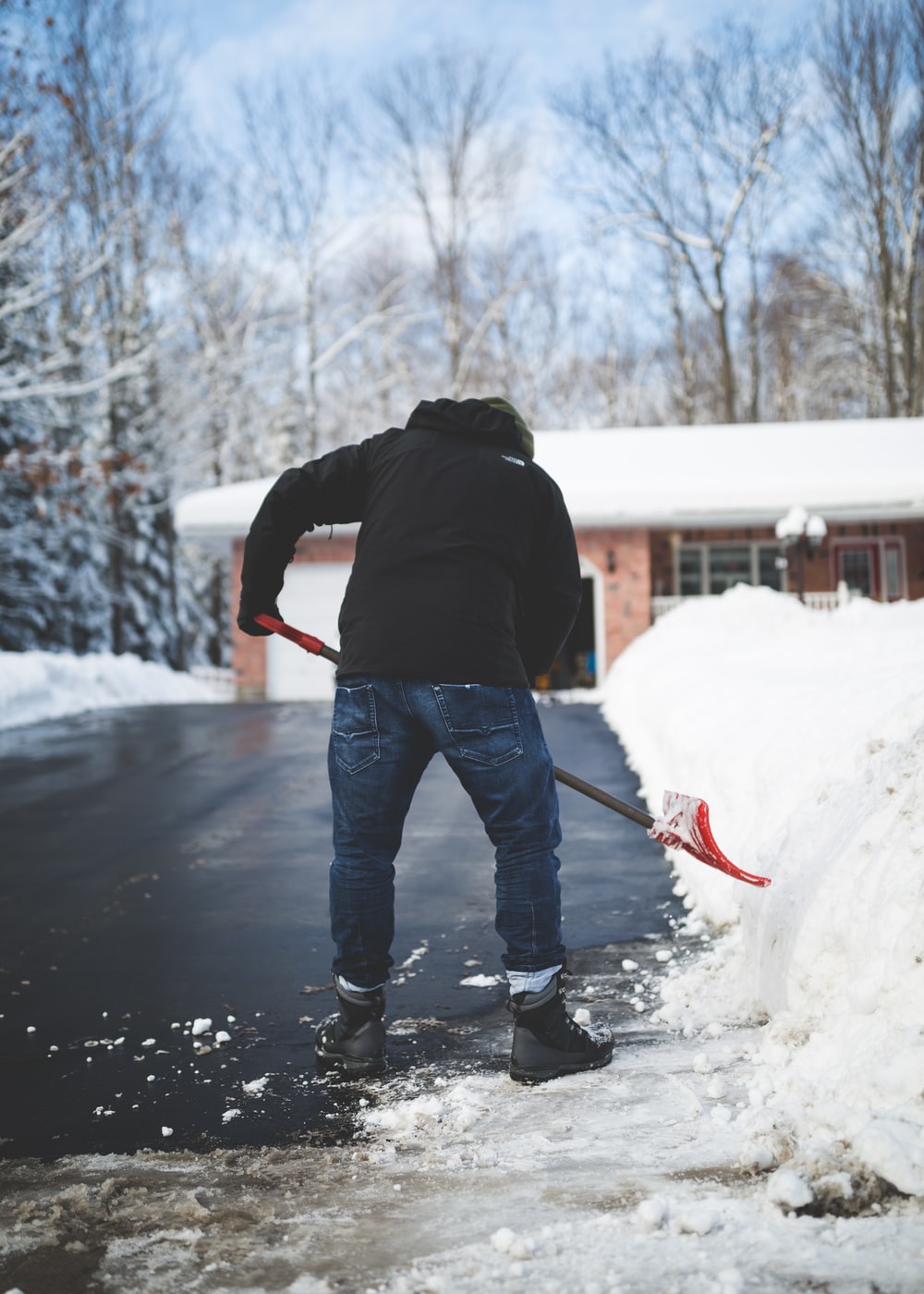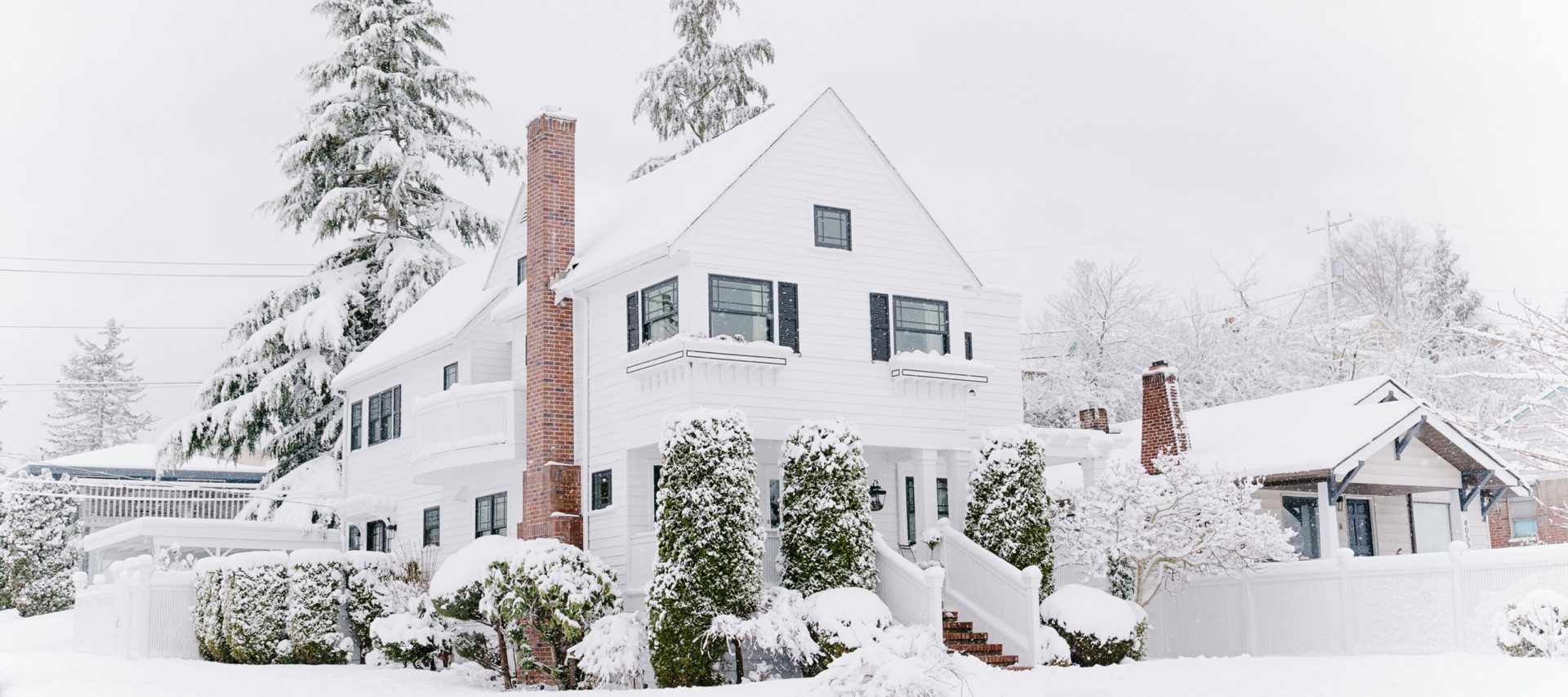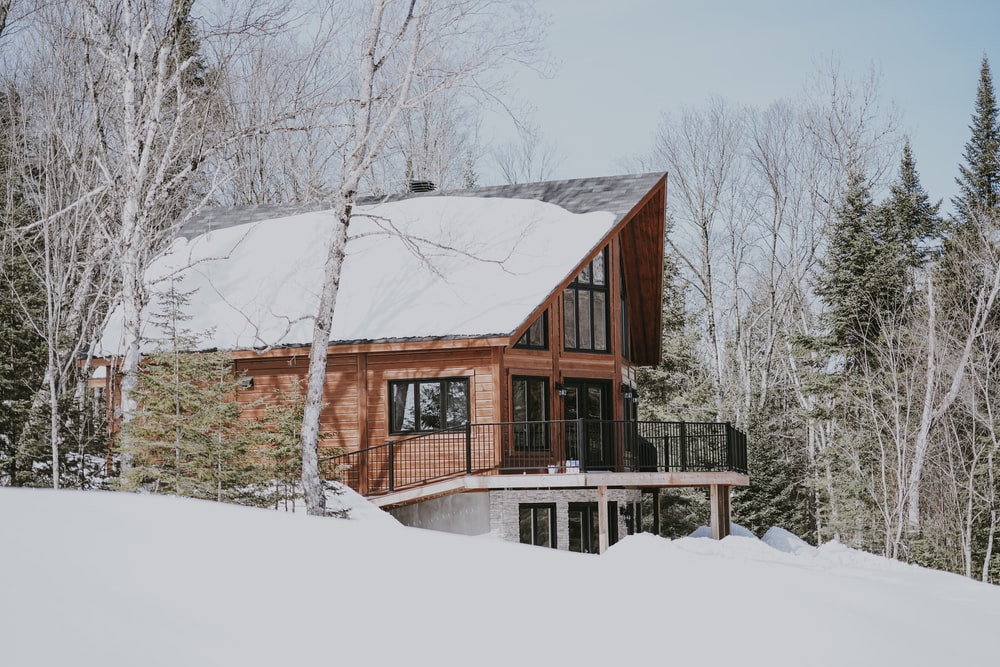Seven Steps to a Safe Winter Season
This region is fortunate to have some of the most picturesque winter landscapes in the country. Rolling hills blanketed in snow. Evergreens adorned with tiny icicles. Crisp, clear skies. But this season can wreak havoc as well. Snow and ice can cause devastating damage to both the inside and outside of your home.
The good news is that you can take steps to protect your home during these winter storms, the cold weather, and the freezing temperatures. Below are seven simple things you can do today for a safe and stress-free season.
Prepare Your Pipes
One of the main causes of damage to homes during winter occurs when pipes burst when the water inside them freezes. When pipes burst in your home, large quantities of water flow into the home’s foundation.
There are several things you can do to prevent pipes from bursting.
The first, and easiest step is to keep your home at a temperature of 55 degrees Fahrenheit or above. Even if you are away for an extended period.
Next, ensure pipes are well insulated with foam covers. These can be purchased at any hardware store or online.
During periods of extremely cold weather, turn on taps so that water can flow through the pipes.
The steps above can help prevent water in your pipes freezing, but Mother Nature will have her way. If you turn on your faucet and notice that there is either no water or very little, then it’s likely you have a frozen pipe. You can solve this problem by identifying the pipe if it easy to access you may be able to thaw it out with a hairdryer, heater, or electrical tape. If you can’t identify the pipe, or successfully thaw it, waste no time – contact a plumbing professional immediately.
Inspect Your Roof
Trouble often starts at the top! Ideally, you should inspect your roof before the first snowfall comes. But if conditions are dry and there is no ice – you can still check it out for damage, such as loose or broken shingles that are susceptible to storms and melting snow.
Make sure chimneys are sealed and in good condition.
Clear away any debris from the roof and guttering that could cause rotting or prevent water flowing.
If there are small repairs to be made and you are capable, then carry them out. But, when trying to decide whether to do these chores on your own or to hire a professional, always err on the side of safety, hospital stays are far more costly than professional assistance. Another consideration may be a wearable medic-alert system. Gone are the days of a necklace with a panic button, for seniors who have “fallen and can’t get up”. The new generation of medic-alert systems are just like smartwatches and designed for people of all ages. They provide services from reminding you to take your medications to sense a fall or tracking you via a GPS system. They can also detect fire and carbon monoxide.
Prepare for Power Outages
In the event of heavy snowstorms, power lines can be affected leaving your home not just in darkness but in the freezing cold. It is best to plan for this eventuality—investing in a generator is an excellent idea. You should also have flashlights and other battery-powered devices to light your home. Make sure you have plenty of batteries to power these devices.
A radio will allow you to connect with local weather updates. Make sure that the radio runs on batteries or solar power. Another handy device to have is a solar-powered cell phone charger so that you can check on friends and family as well as weather information.
Check Outdoor Lighting
Before the winter sets in, confirm all your outdoor lighting is in working order. Consider adding additional Path Lighting. There are several options that are cost-effective and easily installed. You can save money by purchasing lights with sensors or bulbs that are operated from your smartphone.
Remove Icicles and Dams
Part of the Norman Rockwell winter scene is icicles hanging from the eves while the family warms beside the fire but they can be lethal and cause damage. Remove any icicles safely by wearing safety goggles and a hard hat. If it is not safe for you to do so and the icicles which have formed are large or high up, then call in the services of a professional. Always warn children to stay away from icicles.

Clear Driveways and Sidewalks
Sideways and driveways can be treacherous when they are covered with ice or slippery snow. You can keep your family safer from falls by having snow shovels handy. Clear away a path that your family can use to make access to your home more safely. Using a snowblower is also an option. Remember to follow this step by using rock salt.
If elderly relatives are visiting then you should assist them on the driveway to your home, especially if they have mobility issues. A fall for an elderly relative can have far more consequences than a fall for a younger person.
Basement Floods
Your home is at risk of flooding when the thaws of spring occur. One major way to prevent this is by clearing snow around your home’s perimeter. During the winter months as snow falls, the wind will blow snow around your home and it will build up. As soon as the snow falls, you should deal with snow by clearing it away as soon as possible before it becomes solid and difficult to shovel.
While the weather outside may be ‘frightening’ keeping your home and your loved ones safe doesn’t have to be. By following the simple steps outlined above you can enjoy all this season has to offer without the stress of costly damages or repairs.
—
Written by Jill Greywolfe
Exclusive for JulieCoRealty.com


